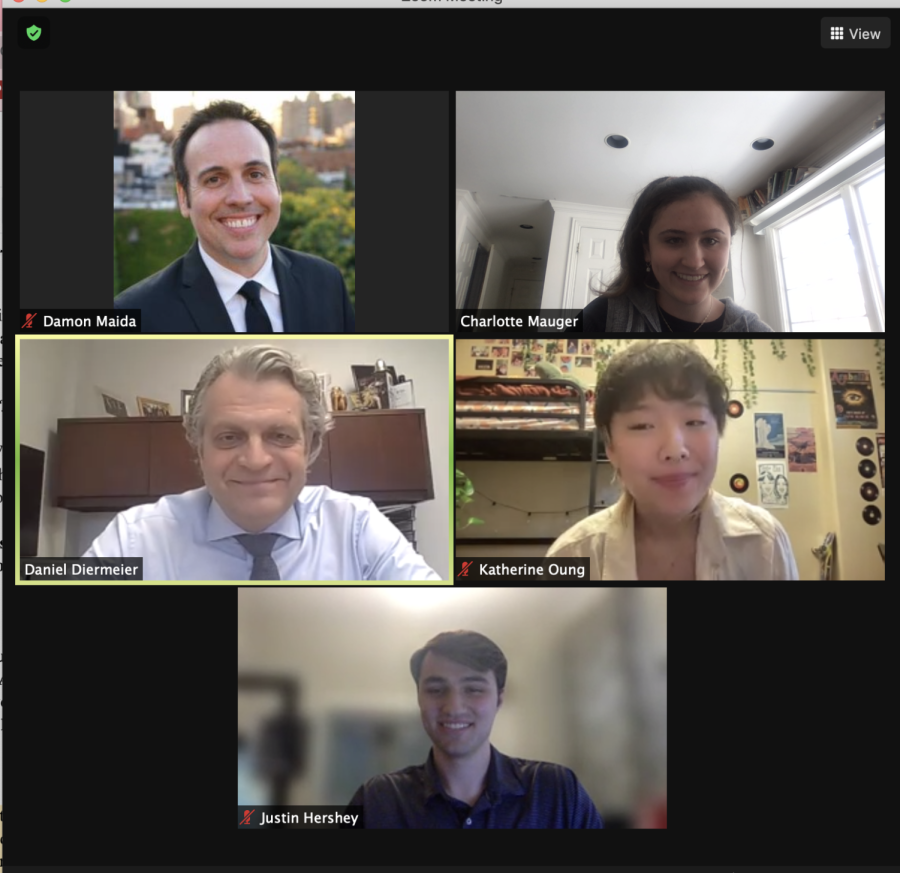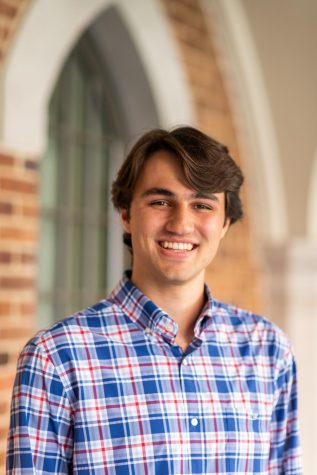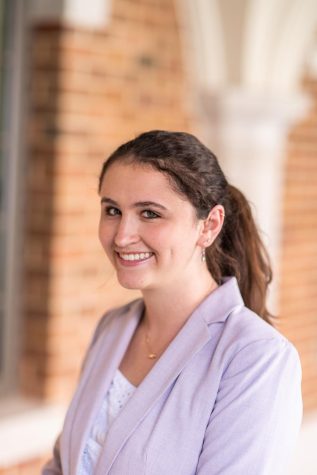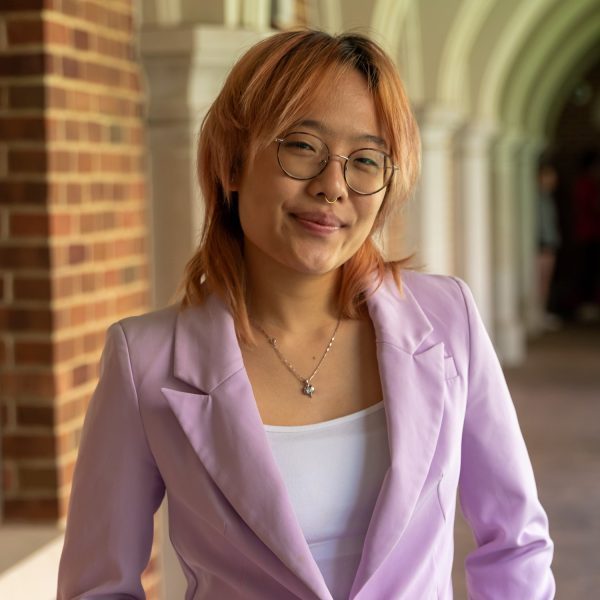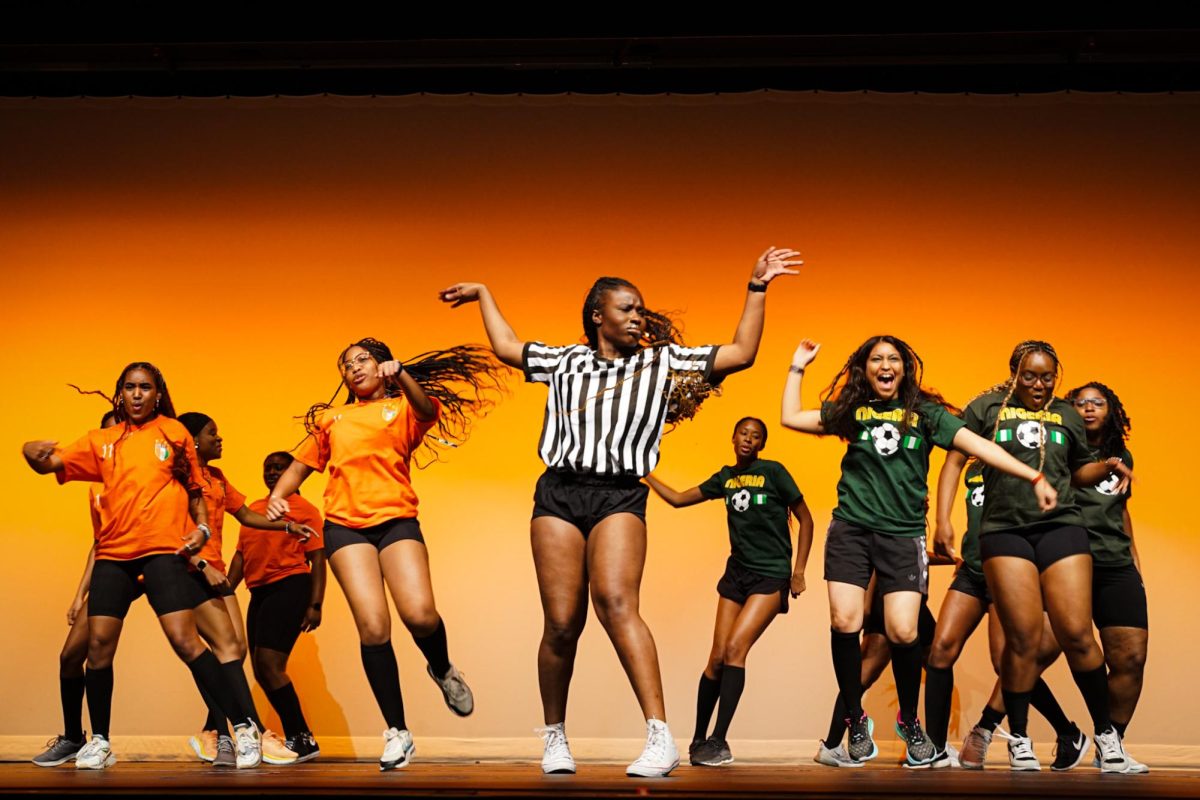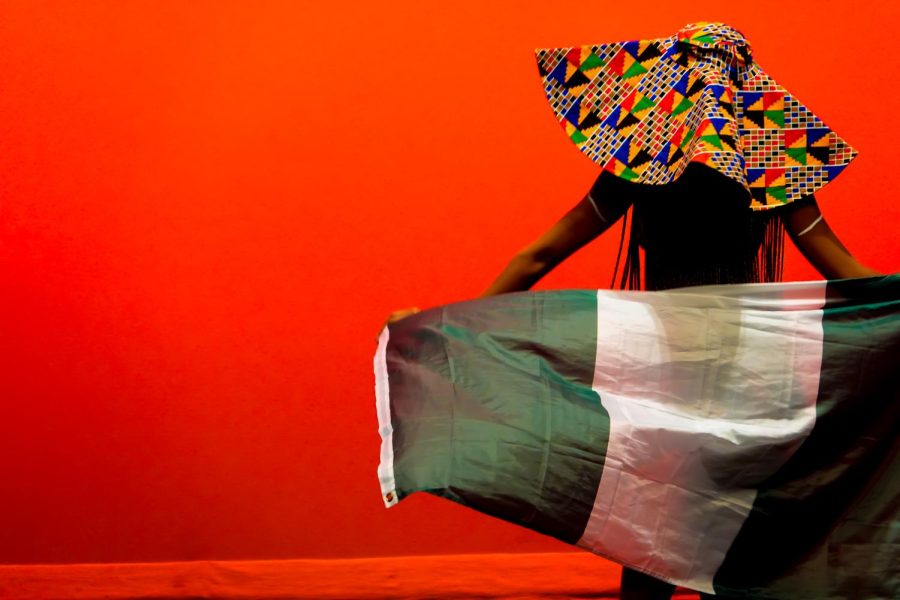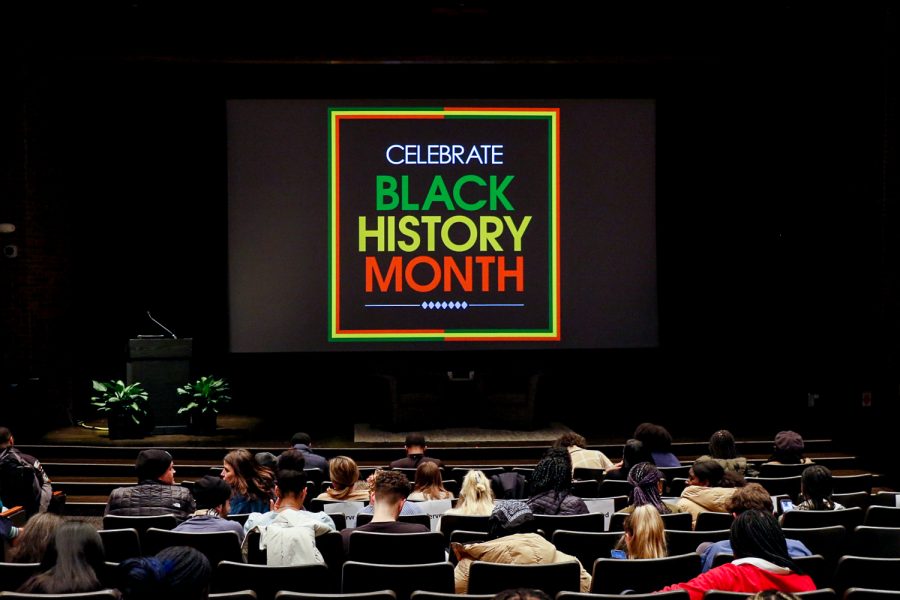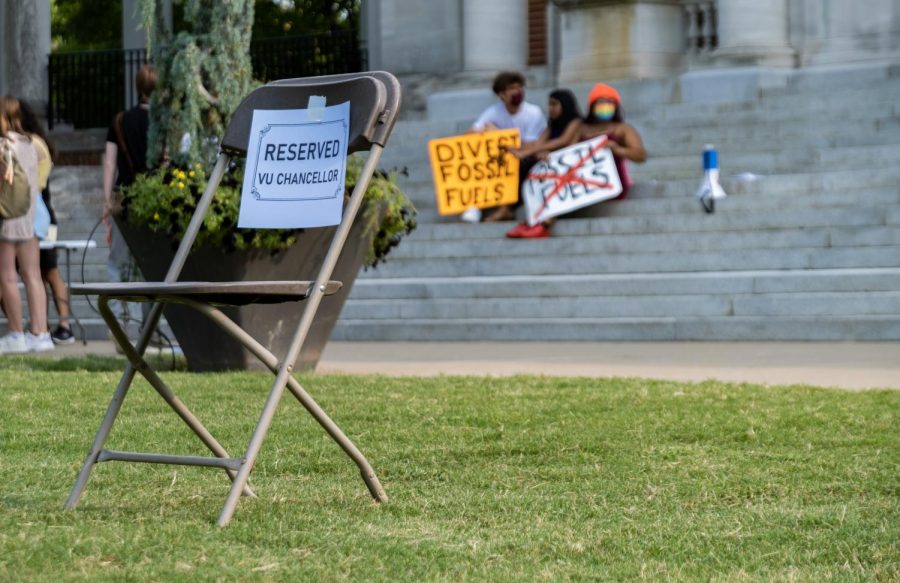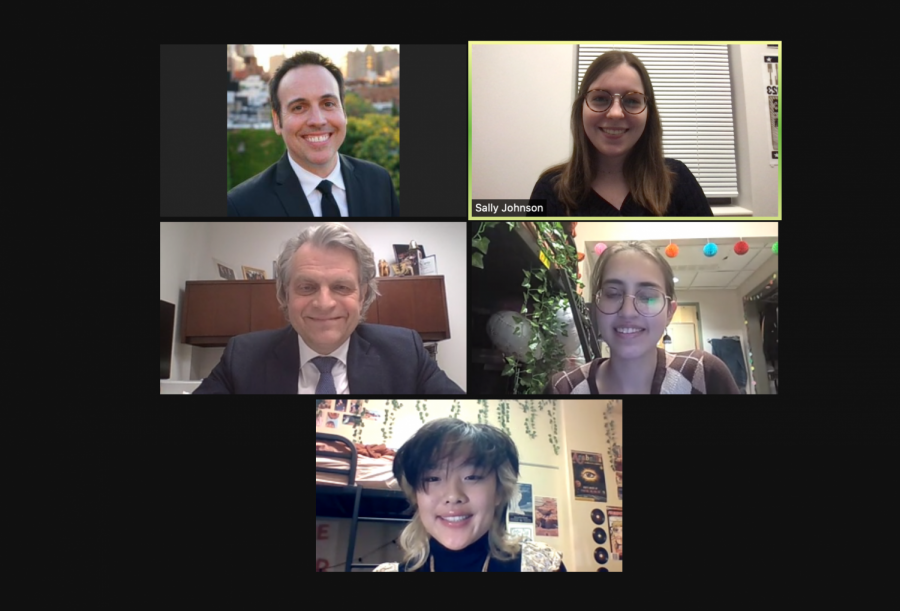As students start Spring Break, The Hustler met with Chancellor Daniel Diermeier to reflect on the first half of the Spring 2022 semester and preview the rest of the semester. He said he anticipates the elimination of masks in classrooms and emphasized that he is committed to a fully in-person learning structure.
In a March 7 Zoom interview with The Hustler, Diermeier discussed the importance of civil discourse, the future of McTyeire International House and offered advice for graduating seniors.
The Vanderbilt Hustler: What are your thoughts on the conflict unfolding in the Ukraine right now, outside of the statement that was released? Will the university directly condemn Russia’s actions in Ukraine like peer institutions, such as Princeton University and Harvard University, which Ukrainian students asked for at a March 1 protest? Will there be any monetary or other university support for students from Ukraine?
Diermeier: This is a heartbreaking situation to watch, of course. Our hearts go out to all of them that are affected, and we are closely monitoring the situation in Ukraine. At this point, our focus really is on supporting the members of the Vanderbilt community, particularly those that have connections to Ukraine and Russia. Top priority for us has been to make sure we support our students, faculty and staff and also make sure that our community is safe.
We have, for example, suspended university-sponsored affiliated travel to Ukraine for faculty, staff and students until further notice. We also have a whole variety of support structures in place. That includes the Office of the Dean of Students, International Students Scholar Services, the Office for Immigration Services and the Student Care Network. We want to make sure that we are there for the members of our community as they go through these difficult times.
What is your stance on issuing university statements about political issues?
Everything that we do has to be grounded in our values and our purpose. What that means for us is that we’re committed to an environment where our students can enjoy a transformative education and our faculty can do groundbreaking work. We firmly believe that both transformative education and research really thrive in an environment where people can freely explore ideas and have discussions and civil discourse even on various controversial issues.
We want to create an environment where these conversations can take place without telling people what to think. We will always have restraint on taking public positions on policy issues where the members of our community may disagree and may have different points of view.
That’s crucial for us and really grounded in what we hold dear in the values and the purpose of the university. As a university, we will have a sense of principled restraint on taking policy positions that are not directly affecting the university.
On Feb. 23, Vanderbilt Chabad hosted guest speaker Rudy Rochman. A group of students protested at the event because of Rochman’s previous statements on Palestine. After the event, the African Student Union (ASU) and the Indigenous Scholars Organization (ISO) released a statement saying that they found Rochman had made some harmful claims about Nigerian and Indigenous communities, and they demanded a public apology from the Chabad executive board. Then, Chabad released a statement saying that there’s been an uptick in antisemitism on campus and Jewish students have reported receiving threats in the aftermath of this event. What is the university’s response to this situation? Does the administration plan on offering any support or resources to the students impacted?
I think that comes back to the question we just had. It’s absolutely essential that we are committed to civil discourse, in particular in talking about issues where people have strong points of view, and everything related to foreign policy issues have that. Civil discourse and commitment to that is critical to the fabric of our community. It’s essential for all members of our community to adhere to the highest standards of conduct that are aligned with that overall commitment.
With respect to the issue that you just mentioned, we have received a couple of reports made by individuals, students and student groups alleging racist, antisemitic and other discriminatory rhetoric, both used during and following the event last week. When we receive those reports, they’re investigated by the Office of the Dean of Students, the Office for Equity, Diversity and Inclusion and the Center for Spiritual and Religious Life. There’s a whole process on that.
We are working now, and we are in the process of scheduling meetings with a variety of different students from different points of view to foster dialogue and conversations with the goal towards restoring respect, trust and understanding. As you probably know, this is not the first time we’ve had issues like that, and we all need to work better together to make sure that we all stay committed to a culture of civil discourse. Everybody has to take responsibility for that: the students that participate, the organizers of the varieties of events that we have across campus and then also the resources that we can provide as an administration. But this is everybody’s responsibility; this is not something the university administration can do on their own.
Following up on that, a banner was also hung outside of Rand in solidarity with ISO and ASU stating “African Students Matter. Indigenous Students Matter. Hold white students accountable for their racism.” This banner was taken down and then put back up by students. What is your response to the banner itself and how the situation was handled?
My understanding is that the banner was taken down because it was unidentified.
In January, a Commodore Cares period was implemented, and one of the things that this barred students from doing was attending basketball games, while Memorial gymnasium operated at full capacity without student attendees. It was a program that a lot of students, alumni and athlete alumni weren’t crazy about. How impactful do you think that the Commodores Care period was with regards to a safe return to campus?
We had a challenging situation at the beginning of the year, which was, of course, the surge of the omicron variant. What we decided to do was to first delay the start of classes by a week and then institute the Commodores Care period. The Commodores Care period had been really successful in previous surges, and our goal was to really limit the types of interactions that students would engage in beyond what was immediately necessary for them to participate in a classroom environment.
My sense is that it was okay. I think that it did help us with the numbers; the surge subsided, and we didn’t have the types of outbreaks that we were really worried about. Now, whether the Commodores Care period was crucial in accomplishing that result or not, that’s a very difficult question that our immunologists and infectious disease experts can probably answer with more competence. We were able to maintain our strong record on dealing with the COVID-19 pandemic that we’ve established over the last year and a half.
It’s also clear that people have a whole variety of different points of view on that, and, every time when we make a change to our policies, some people disagree and some people agree. This is our hotly debated area; we like where we are, and we like the decisions that we’ve taken. I think that we’re in a good spot and continue to be in a good spot here at Vanderbilt. We will continue to look to our public health experts as we’re adjusting policies.
Many campuses around the country limited attendance in gymnasiums and sporting events in general, not just for students. That’s not a route that Vanderbilt elected to take. What was the response and the conversation behind not restricting attendance in Memorial, but implementing the Commodores Care period for students?
People have to understand that we were being compared, for example, to our peers in the SEC, which didn’t have such restrictions. As a private university, we have a different regulatory environment than public universities. Decisions that we have to make, both in terms of our responsibility and our students [and] the broader regulatory environment, are just not the same.
We made a decision where student, faculty and staff safety comes first, and attendance of athletics events would come second. People may disagree with that; that’s fine. But we did this given the typical or unique circumstances that Vanderbilt is compared with other peer universities, particularly other public universities in the SEC, because their context is different.
There have been several new updates on the Vandy United plan over the past few months. Are there specific parts of the plan that you see as higher priorities than others? In an ideal world, when would you and Athletic Director Candice Lee like to have those projects completed by?
We’re very excited about this. This is really a transformative project for athletics at Vanderbilt. We have an overall plan outlining what we want to do. It will affect pretty much every aspect of Vanderbilt athletics, but, of course, there will be a particular focus on football and basketball—where we have the most work to do right now, we feel, including the stadium. We’re moving full speed ahead of that.
There are a couple of things that are all going on at the same time. The first one is a fundraising campaign that’s going very well, and the second one is just facility planning and so forth. That’s going well. We are excited. We are expecting and excited to break ground later this year on the basketball practice facility, which is the first one that we’re moving on, and we expect to have many concurrent projects over the next few years. We don’t have a totally tight timeline on that yet because there is some infrastructure stuff that first needs to be taken care of. But we are fully committed and moving forward with this project as expeditiously as we can.
Since we last asked you about divestment, there have been a few developments. There was first the conflict of interest filing with the university and then the complaint filed with the attorney general’s office. What are your thoughts on these filings, and will either impact the university’s stance on divestment?
There are two student groups that are interested in divestment. The first one is called DivestVU. They are a registered student organization, and they have had various levels of discussion and dialogue with university administration—with the investment office [and] with myself a couple of weeks ago. Then, there is an unofficial, non-recognized group called DoresDivest. DoresDivest has now for the last half year plus engaged in a pressure campaign to try to pressure the university to fall in line with what they want to do.
There were various different actions that this group has taken. The most recent ones were to file a conflict of interest investigation against me. What happens in those cases is that the Board of Trust’s Audit Committee investigates those complaints as it would investigate everything that’s submitted. That’s an independent process that I’m not part of, and then they release their findings. The findings found no violations of a conflict of interest on my behalf. You’ve then heard that there was a complaint filed with the attorney general against the university and its board that was part of a coordinated campaign where we were attacked as well as Yale, MIT, Stanford and Princeton. We take our fiduciary responsibilities and Tennessee state law extremely seriously. We think that this is part of an organized pressure campaign against us and peer universities and that these allegations have no merit whatsoever.
What was that dialogue like when you met with DivestVU? Has the university’s stance of “principal neutrality” on divestment evolved at all from the last time we spoke?
I thought we had a very good constructive discussion. I think I understood their thinking, and I think they understood our thinking. Our thinking is really grounded in the concepts of principle neutrality, and what that means is that when you divest, you are taking a policy position. The policy position you’re taking is that it is the best or a good idea to address climate change by cutting off western oil firms from financing. Now, there’s a whole variety of technical issues and difficulties to that.
If you follow what most universities have done, [divesting] an endowment is extremely difficult just as a technical issue; but there’s a principle at stake here. The principle at stake is that people have all sorts of points of view on how to address climate change. Former Vice President Al Gore thinks divestment is a good idea. Bill Gates thinks it’s a very bad idea and that we should invest in innovative technologies instead. People like Larry Fink think it’s a bad idea because we should use the shareholder mechanism to pressure companies to move towards a more carbon free environment, so you want to actually invest in all companies in order to do that. These are all reasonable points of view; this is a very active research area. Our faculty have different points of view; our students have different points of view.
My point of view is that when we have issues of policy where our community has legitimate disagreements, and where there’s a whole variety of different points of view, we should not tell people what to think. That’s what a university should be about.
We are doing an enormous amount and finding innovative solutions [for] our faculty, staff and students for climate challenges. We engaged with ClimateVault, which is a nonprofit that is using trading mechanisms to reduce our carbon footprint. They are also making investments in innovative technologies. We have made great progress with our partnership with the Tennessee Valley Authority and Natural Electric Service, which will basically allow us to reduce and eliminate our carbon proof electricity production. We won the 2021 Governor’s Environmental Stewardship Award, and the list goes on. We are very committed to finding solutions; we just do not like the idea of telling people what to think on policy debates. That’s the deep reason for why we think the primary goal of the endowment is to support the work of our faculty and our students and not be an advocacy tool.
Students have told The Hustler that Zoom options do not exist this semester for students who are in quarantine or who do contract COVID-19, and that a problem exists for students in quarantine who miss days of classes. Is this true, and can you outline this policy for students who are expected to do class when they are quarantined?
The decision that we made is that we wanted to be committed to a full return to in-person instruction. That’s really based on the experience that we have with hybrid classrooms. What that meant for us is that we would not have a hybrid type of instruction, but there would be, simultaneously, in-person and online instruction. So students that were in quarantine would then have asynchronous options to catch up on class—for example, recording lectures, posting lectures, posting class notes, arranging time to discuss and meet. We did not want to encourage having hybrid classrooms because we did not feel that that was a successful learning experience, not just for the students that are in quarantine but for everybody in the classroom. That’s the main concern.
Could you also outline the policy for professors who contract or are close contacts with individuals who contract COVID-19?
Professors, because they are the ones delivering the lectures, while they are in quarantine are able to teach online for a limited period—the four or five days that they are affected by COVID-19.
The concern is that the moment you have hybrid participation in classrooms, it changes the education experience for everybody, and we didn’t want that.
So, asynchronous solutions, such as recording classes and posting lectures that the students can watch at their convenience, is where we ended up.
When was this policy decided? Why do you think hybrid learning was not a good model? Is the goal to ultimately return to fully in-person learning?
A couple weeks in [into the start of the Spring 2022 semester], I would say. There was a lot of discussion with the deans on that as well. Absolutely, 100% fully in-person. That’s our goal. We do not feel that hybrid learning creates the same education experience that in-person learning does. We’re absolutely committed to that.
What did the conversation look like surrounding the decision to lift masking requirements? And what will that look like at large indoor and outdoor events such as like graduation ? Will this change any of the vaccine or booster requirements for students?
This is evolving and it will evolve in line with the advice we’re getting from public health experts and especially the CDC guidelines. You may have heard that there is a there was a change in the CDC guidance that basically ties things like masking to the status of the community—serious, moderate and so forth. There will be ongoing adjustments to that, so speculating for what this means for Commencement, I just wouldn’t go there because it sounds like it’s too fluid right now. We will adjust the policies in line with the situation in Tennessee and in Nashville and in line with the CDC guideline and public health guidelines.
As the policy stands right now, when students returned from spring break do you anticipate that many classes will be able to held with be able to be held without masks?
Our sense is that the that we will have many of the classes will not require masking at this point, so we will be much closer to a typical classroom experience. That’s that’s our expectation.
But again, this is a fluid situation right now, the numbers are going down pretty rapidly within Nashville and in Tennessee as well and that may lead to another update. As we’re as as as the situation gets better. My stance for people would be right now is is expect [not to wear masks] but this [could] change; it’s just the nature of the beast.
After Anja Bandas retired, students in McTyeire International House found out that their dorm would no longer be an LLC as it currently exists. The Hustler was also made aware that some Mayfield Lodges would become quarantine housing. Given these developments, what will the future of LLCs look like on campus? How will they relate with the Residential College model, and what do you hope students get out of their experience in either? How does that tie into future residential goals for the university?
McTyeire International House has promoted foreign languages for the past 40 years, and we’re very grateful for the 25 years of service given by Anja Bandas. That transition has now created an opportunity for the College of Arts and Science to reimagine and re-envision McTyeire International House in order to increase opportunities for the entire Vanderbilt community to engage in the languages.
McTyeire will transition to traditional upper-division student housing beginning in the fall of 2022. We will, with input from faculty, students, staff and the College of Arts and Science, re-envision language education to align with the many changes that we’ve made in terms of residential education over the last years. Our goal is to expand immersive language training and increase flexibility to engage more community members and to help propel a language education forward. There’s a whole variety of new initiatives along those lines and as more developments are finalized in terms of language programming; we’ll keep you updated and posted on that as well.
What advice would you offer to seniors as they look to make the most of their final months at Vanderbilt and embark on their lives outside of college?
I think that particularly for those of you that are graduating seniors, take full advantage of the time you have with your classmates, with your community, with the city.
Then, we really want everybody to think of themselves and to be a member of the Vanderbilt community for life. Think a lot about how you want to be engaged in the alumni community, how do you want to stay in touch with Vanderbilt and come back to the reunions. Enjoy the time that you have right now, get as much as you can out of it, leave with super happy memories and then stay connected for the rest of your lives.
Answers have been edited for length and clarity.

